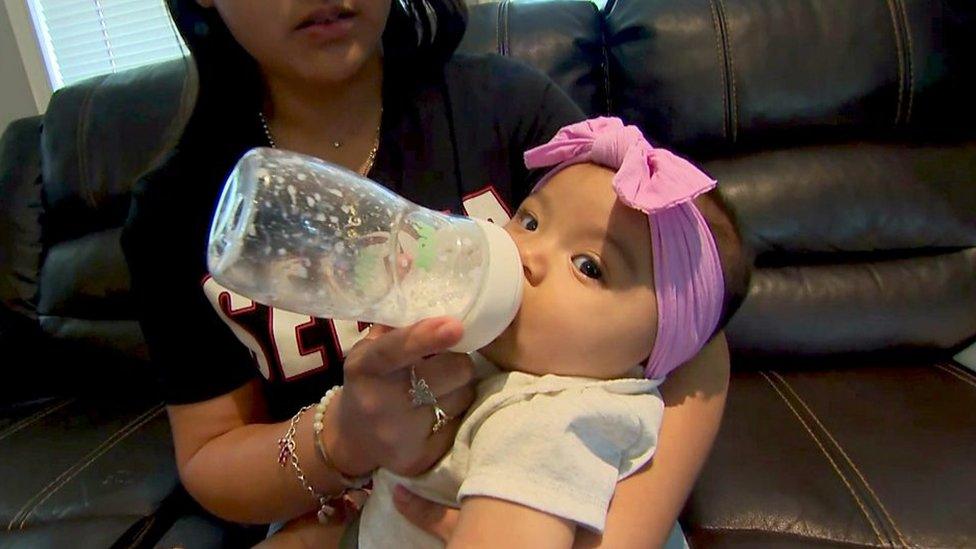US parents turn to black market due to formula shortage
- Published

Lauren says rules restricting imports don't make sense
Mum Lauren Galvin needed to get extra milk into her baby. He was spitting up so much after nursing that he wasn't gaining weight and had to be taken to hospital, twice.
But, with the US in the grips of a severe national shortage of infant formula, she couldn't find any to buy.
So Lauren turned to the black market, going online to order a Dutch-made brand that is barred from import to the United States.
US authorities have repeatedly warned against buying milk that hasn't been approved for export to the US.
Last year, customs officials seized $30,000 worth of European formula, saying it lacked appropriate nutritional labelling and they could not guarantee its safety. Two years before that, they blocked formula worth $162,000 at the border.
Lauren, a nurse in Missouri, consulted with her paediatrician and others about the risks, but she didn't hesitate long.
"If this is healthy enough for European babies, American babies aren't any different," she says.
'I am angry'
Lauren says the rules don't make sense to her. And she's not the only one with questions.
The baby formula shortage, now in its fourth month, has shaken confidence in US food safety authorities, revealing a mix of weak oversight and rigid government rules, that analysts say left the industry vulnerable to crisis.
"I am angry," says New Jersey mum, Stephanie Esposito. She spends her days hunting for formula for her nine-month-old son Dominic, who has allergies and can only tolerate certain mixes. "What are we supposed to feed our babies?
"I don't understand how they could let it get to this point."
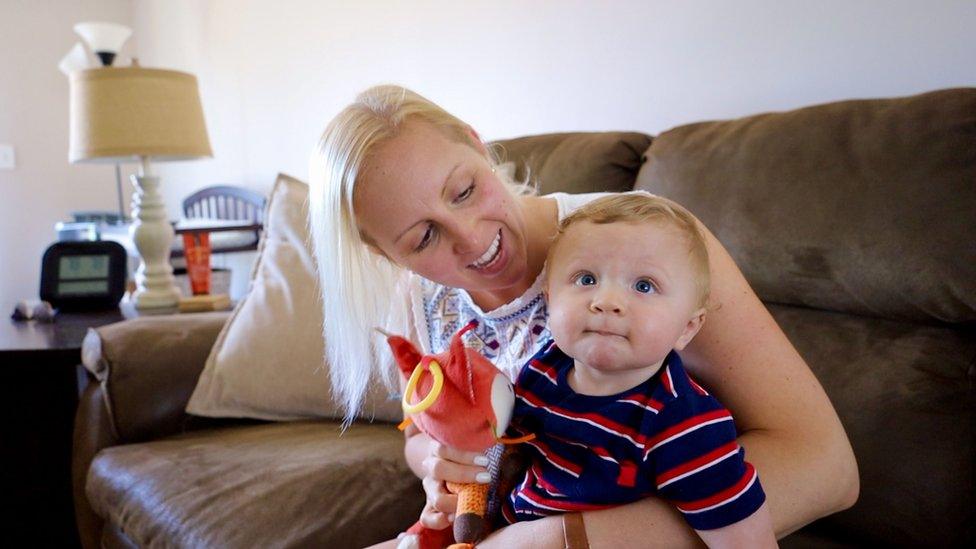
Stephanie Esposito spends her days hunting for formula suitable for her son
Signs of the shortage first emerged last year, following Covid-related supply strains. It reached full blown crisis in February after formula maker Abbott Nutrition, the firm behind the brand Similac, issued a major product recall. Authorities shut one of the firm's factories, citing bacterial contamination, thereby knocking out a large share of US production.
Few dispute that conditions at the factory required action, but the government's handling of the situation has been widely criticised, especially after it was revealed that a whistleblower had alerted authorities to sanitary problems months before inspectors responded.
After the shutdown, analysts say the Food and Drug Administration (FDA), which oversees the formula industry, made matters worse by overestimating the ability of Abbott's rivals to fill the gap in production, especially after parents panicked, sending sales surging.
Operation formula
More than half of American infants receive at least some formula by the time they are three months old. So political pressure has been mounting to find a solution.
Last month, US President Joe Biden announced "Operation Fly Formula", allowing the FDA to temporarily relax its rules, and approving the use of military jets to ship in formula from overseas.
More than two dozen companies have applied to bring formula into the US. The UK's Kendamil, Bubs Australia and Nestle's NAN are among the brands that have received waivers, which are valid until November.
Had such moves happened earlier, the crisis could have been averted, says Morvarid Rahmani, professor of operations management at Georgia Tech's Scheller College of Business.
"There is obviously not a global shortage," she says. "All of this could have been prevented by taking timely action."
In the mix
But even before the shortage, doubts about the FDA had been simmering.
There was a wave of reports warning of risky ingredients in products overseen by the FDA, including baby food, sunscreen and cosmetics. And some parents were already turning to banned foreign baby milk products, drawn by were stricter rules in some overseas markets, such as a ban on corn syrup, an ingredient common in US mixes.
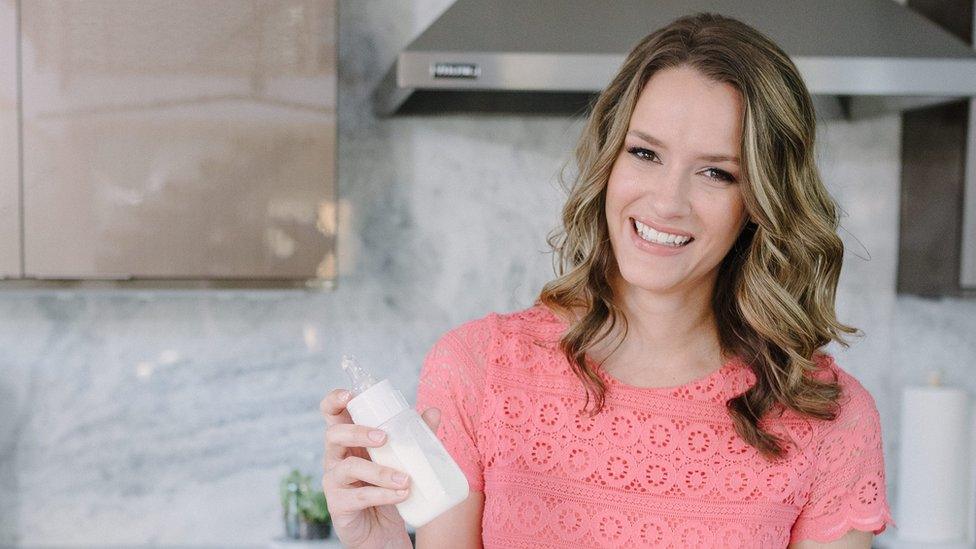
Formula Mom Mallory Whitmore says parents' confidence in the FDA has been slipping
Instagram influencer Mallory Whitmore, a certified infant feeding technician known as "Formula Mom", says parents are "no longer putting a lot of stock" in FDA guidance.
"Especially right now, we're seeing this very rapid approval of foreign imports ... which is very exciting, but I think a lot of parents ... are starting to wonder: was the FDA actually concerned about what was safest and healthiest for my infant or were they concerned about protecting the interests of American formula manufacturers?"
Once the waiver allowing in foreign formulas expires, parents won't believe they are no longer safe, she points out. "So the question is, 'Are these formulas going to stay or not?'"
Worry and fear as baby formula shortage continues
Analysts say increasing the number of formula suppliers in the US is critical to preventing another crisis.
But currently two big players, Abbott and Reckitt Benckiser's Mead Johnson, which makes Enfamil, dominate the market, together claiming roughly 80% of sales.
And it's a tough sector to break into.
Abbott and Reckitt Benckiser hold many of the government contracts to supply formula to low-income families enrolled in social support programmes, which account for around half of all US formula sales. And for new entrants there are lengthy reviews of their mixes, border taxes, and strict labelling rules to grapple with.
Meanwhile, US formula sales are in decline, as birth rates slip and breastfeeding rates tick higher.
Thorben Nilewski, is managing director of the Swiss formula maker Holle's US unit. It has applied to sell infant formula under the relaxed rules, but he says the regulatory hurdles for importing are "very high".
"Holle has observed this field for a long time but has to date never finally applied for admission due to immense cost and time expenses needed," he says.
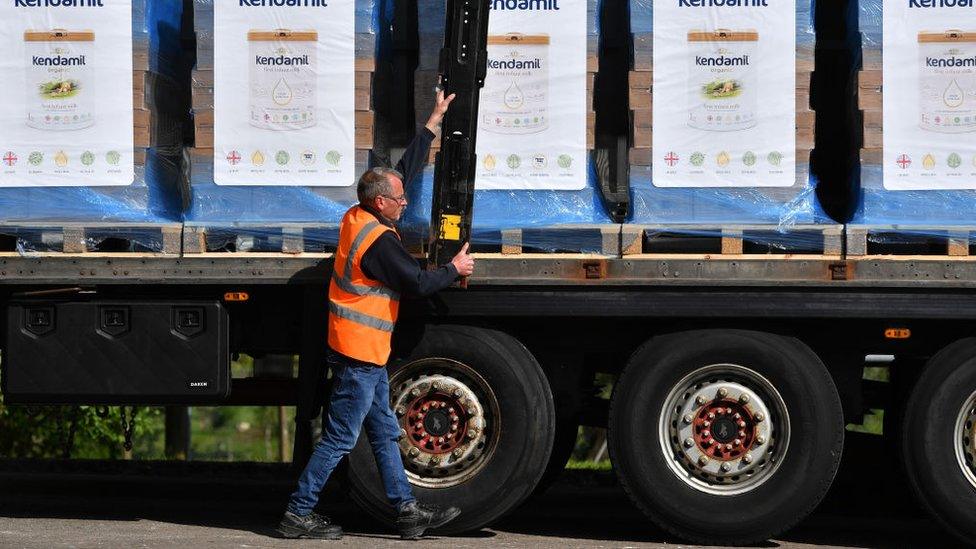
The UK's Kendamil was among the first foreign brands to receive US approval under the new rules
Laura Modi argues it's time the market was made more open to competition. Her own start-up Bobbie, makes a "European-style" formula, launched after she was dismayed by the lack of choice she encountered as a new mother.
"When you look at the reason we're in this shortage, it is inextricably tied to the fact that only two players own the majority of the market," she says. "When one manufacturer goes down, we should be able to turn to another."
The FDA, however, has continued to refer to the current waivers for overseas imports as temporary.
At hearings in Washington last month, Commissioner Robert Califf admitted problems with food oversight, saying that side of the agency needed a "shot in the arm", and calling for more funding and power to monitor company supplies. But he has defended the current rules in general as upholding safety standards.
Lauren says something needs to change. "Do better," she says. "Our kids' lives are at risk."
Related topics
- Published24 July 2017
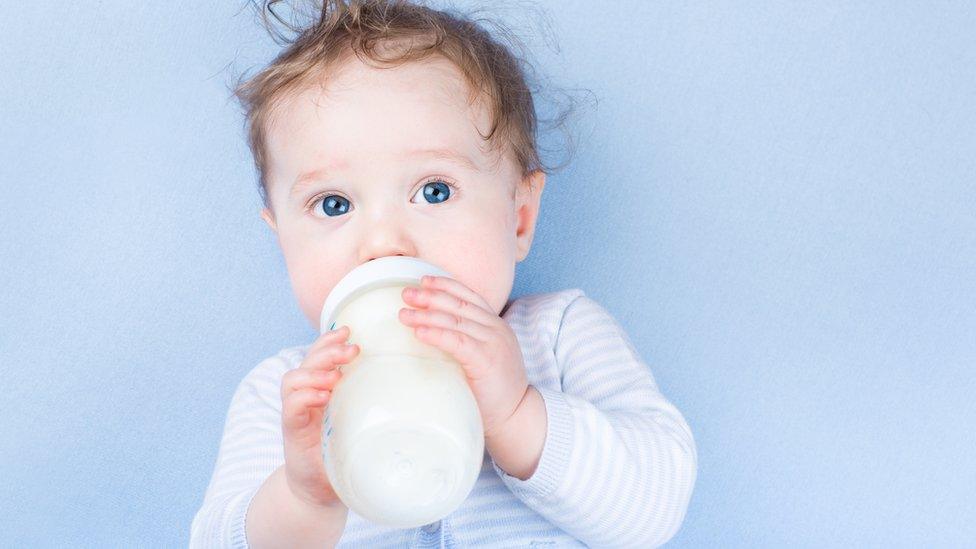
- Published9 May 2022
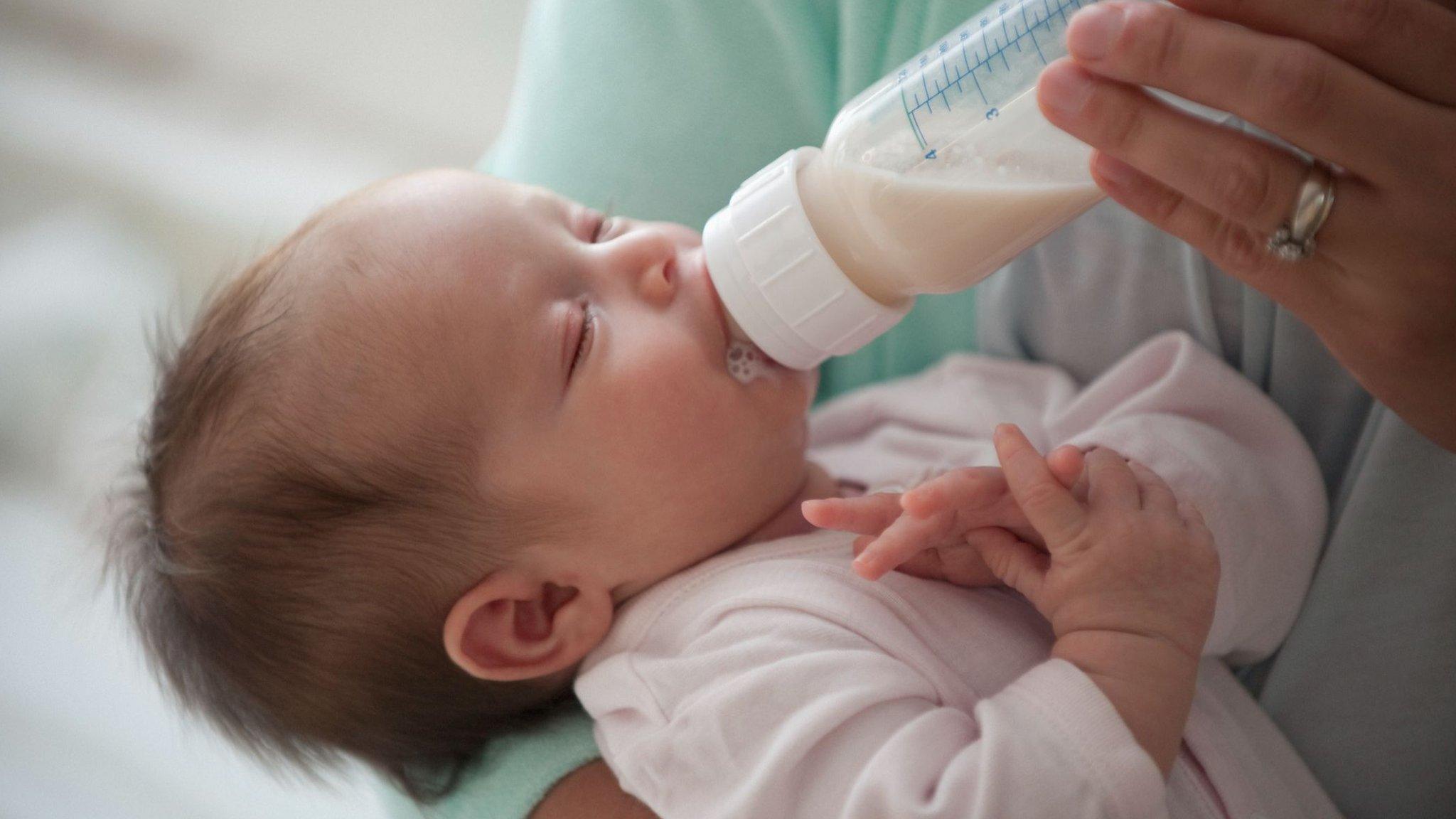
- Published7 January 2014
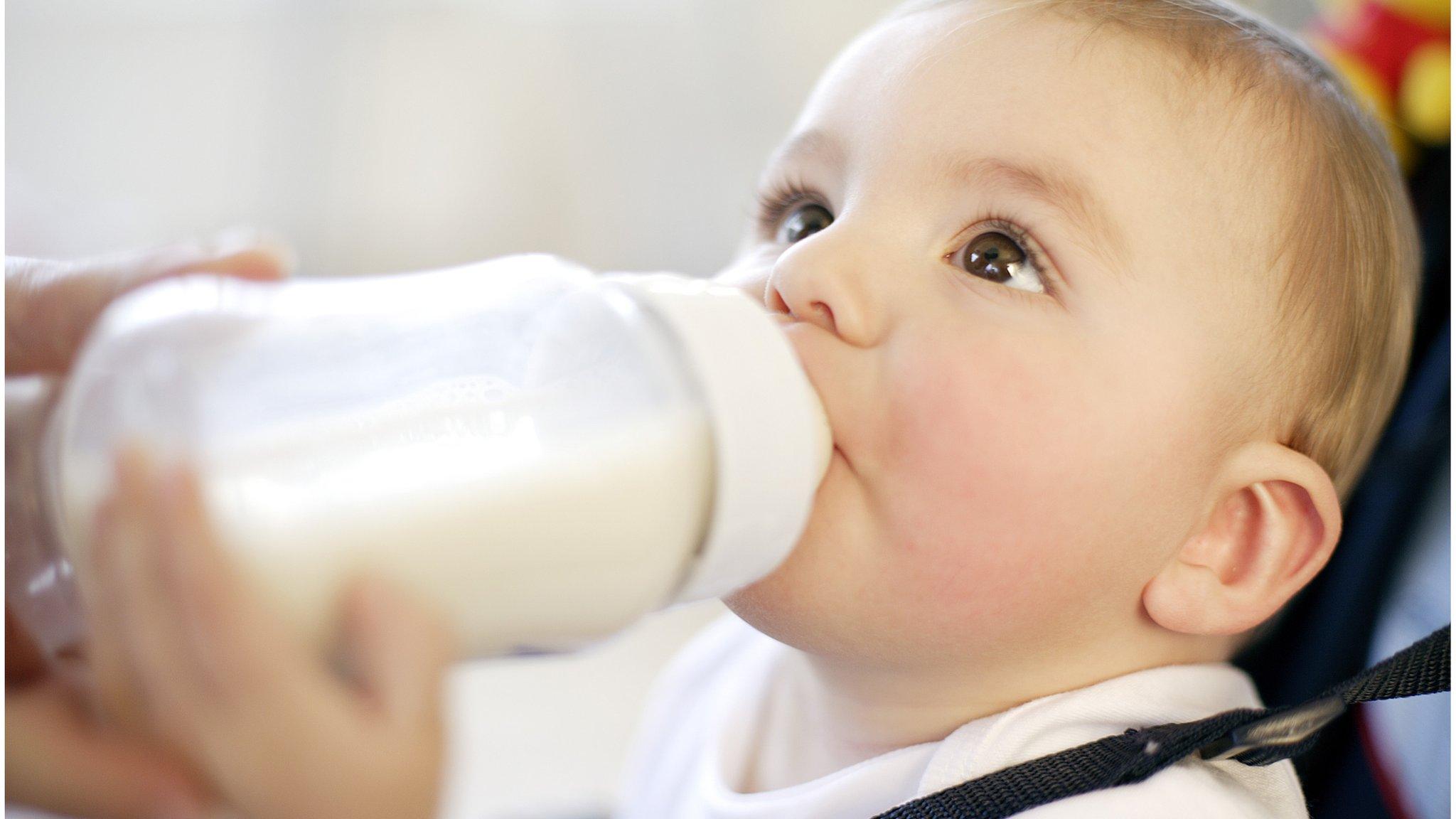
- Published26 May 2022
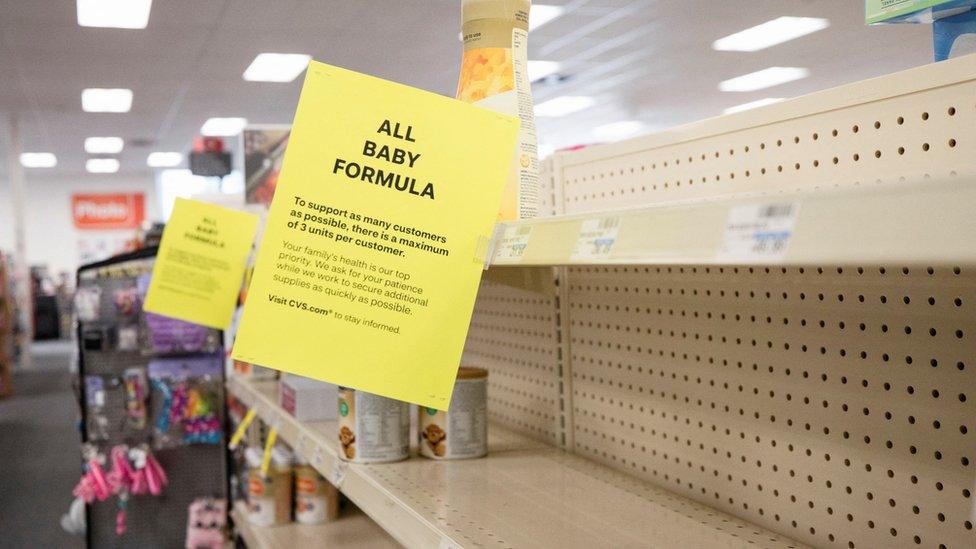
- Published21 May 2022
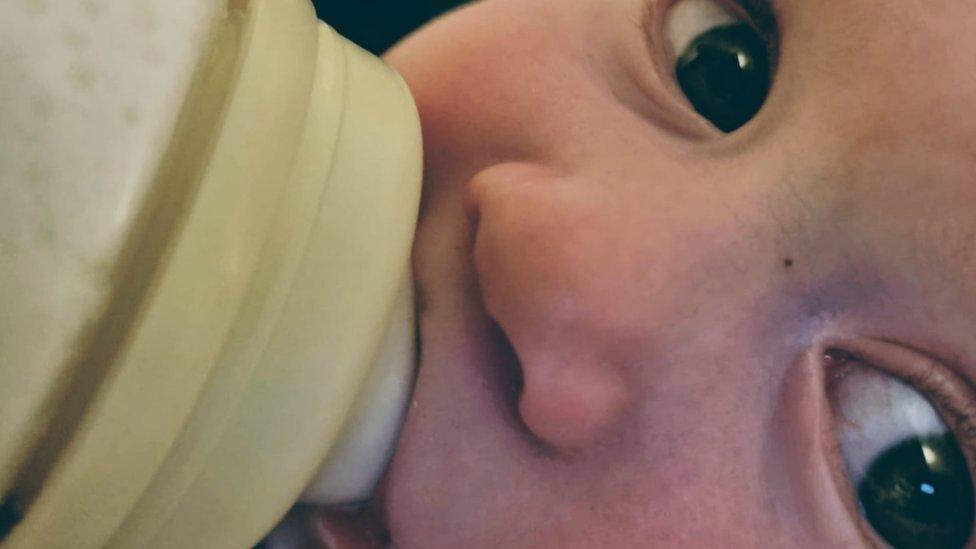
- Published19 May 2022
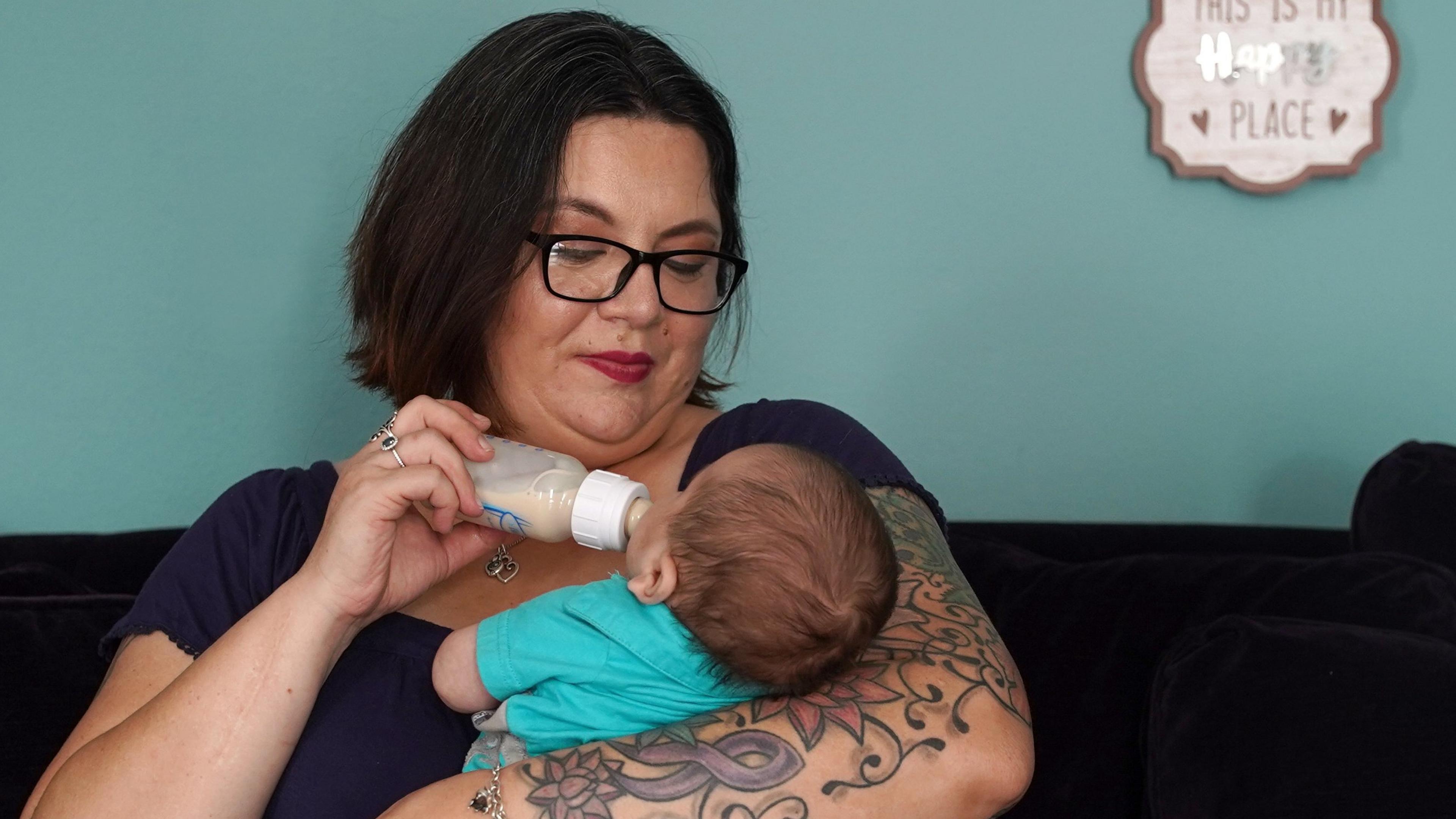
- Published13 May 2022
